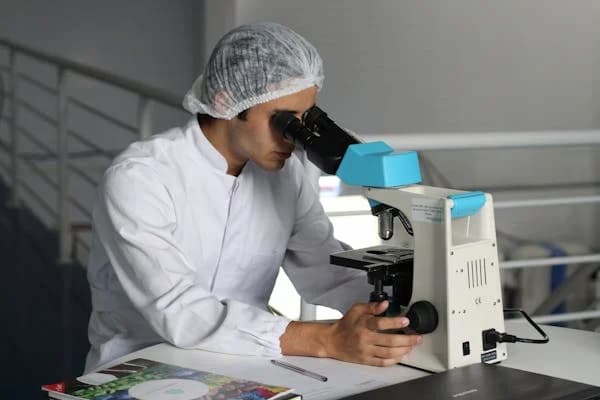Chronic kidney failure (CKF) is an end-stage kidney disease, which develops as a result of significant impairment in the functions of the kidney. This disease progresses over a period of time, often leading to death from heart disease. Using stem cells for kidney repair in 2024 has shown immense promise in the management of kidney failure.
This article is aimed at discussing the indications, contraindications, and benefits of using stem cells for kidney repair, as well as treating kidneys with stem cell therapy cost.

What Is Chronic Kidney Failure?
Chronic kidney failure is a condition caused by the gradual loss of renal functions. This term comprises a number of conditions that impair the kidneys’ ability to effectively filter waste products from the blood. This eventually leads to the accumulation of excess water and toxic waste in the body, resulting in a decline in the patient’s overall health.
In advanced stages, renal failure necessitates intervention such as dialysis or kidney transplantation to sustain life.
If not managed properly, chronic kidney failure can progress, allowing the waste products in the blood to reach harmful levels. This might increase the likelihood of developing complications, such as cardiac failure.
However, timely detection and treatment can improve or reverse the pathogenesis of CKF and restore normal renal functions.
Currently, there are research studies being conducted to assess the effect of stem cell therapy in the management of chronic kidney failure with the purpose of discovering alternative treatments to restore kidney functions.
Get a free online consultation
Contact us to learn about the expected results for your case, the duration and the cost of the therapy.

Medical Advisor, Swiss Medica doctor
Does Stem Cell Therapy Work for Kidney Disease?
Stem cell therapy for kidney disease suggests that the self-renewal capability of mesenchymal stem cells can promote many therapeutic benefits. In addition, the ability of stem cells to facilitate the growth and regenerative properties of various cell types could help restore the functional integrity of the kidney cells called nephrons. This is expected to help reverse or slow down the prognosis of chronic kidney failure to some extent.
Harnessing stem cells for kidney treatment also shows potential anti-inflammatory benefits, which are expected to effectively reduce inflammation in the nephrons and other kidney tissues. The reduction in inflammation could enable the body to initiate healing processes, which might have been previously hindered, thus supporting a favorable prognosis.
Therefore, researchers believe that stem cell therapy for kidney disease could advance the treatment of CKF.
Indications and Contraindications for Stem Cell Therapy for Kidney Failure
Stem cell therapy for kidney failure in Europe or elsewhere could be indicated if the condition is associated with different pathogenesis like:
- Chronic inflammation in the nephrons and other kidney tissues;
- Autoimmune conditions affecting renal functions, such as systemic lupus erythematosus (SLE);
- Chronic progressive renal conditions, such as nephrotic syndrome;
- Impairment of renal functions as a result ischemia-reperfusion;
- Organ damage associated with the side effects of medications, such as chemotherapy drugs.
However, stem cell therapy for kidney disease may not be effective or is contraindicated in some cases. Patients diagnosed with renal failure or conditions that could make them vulnerable to developing renal dysfunction may be contraindicated for stem cell therapy.
Some other contraindications may include:
- active infections,
- cancer,
- severe heart diseases,
- pregnancy and breastfeeding.
Patients might consult stem cell experts at Swiss Medica clinic, offering advanced treatment with cell and biomedical products in Serbia. During the consultation patients will know whether this therapy could be safe and effective for managing their condition, as well as kidney stem cell therapy cost.
Advantages of Stem Cell Therapy for Kidney Failure
Stem cell therapy can offer advantages for patients with kidney failure, some of which include the following:
Anti-inflammatory effects
Stem cells for kidney repair can exert an anti-inflammatory effect on the kidney cells called nephrons. This might help to reduce inflammation in the nephrons and relieve or reverse the symptoms of nephritis.
The anti-inflammatory effect of stem cells can also be beneficial in the management of renal failure associated with the side effects of chemotherapy or other medications.
Regenerative potential
Stem cells possess regenerative potential, which means they have the ability to divide and mature into cells having a structure and function similar to kidney cells.
This property of stem cells can help replace the damaged tissues in the kidneys with new cells and restore the functional efficiency of these organs.
As a result of stem cell therapy for kidney disease, the kidneys can regain their ability to filter excess water and waste out of the body, thereby protecting the patient against potential complications related to the accumulation of excess water and toxic metabolites.
Immunomodulatory effect
Stem cells possess immunomodulatory properties, which means they have the ability to alter the response of the immune system.
This advantage of stem cell kidneys treatment can be specifically effective in the management of autoimmune conditions affecting the kidneys, such as systemic lupus erythematosus.
Patients can be treated with stem cells to slow down the progression of this condition. This could improve the quality of their life to a great extent by lowering their risk of complications and reducing the need for frequent dialysis.
Secretion of trophic factors
Stem cell therapy for chronic kidney disease results in secretion of various trophic factors that play a crucial role in enhancing the survival and function of kidney cells. These trophic factors, which include cytokines, growth factors, and extracellular vesicles protect existing kidney cells and also promote the repair of damaged kidney tissues and the regeneration of new, healthy cells.

Safety of Stem Cell Therapy and Possible Side Effects
Stem cell treatment for kidney failure involves extracting stem cells from the body of a donor or patient’s own body, and reinfusing them into the patient’s body.
Safety of stem cell kidney repair in 2024 is supported by the following factors:
- Rigorous screening and testing of stem cells to ensure their purity and safety;
- Conduction of procedures in sterile facilities by trained and experienced medical professionals under strict protocols;
- Minimally invasive procedures, involving injections or infusions, with a short recovery time;
- Close monitoring of patients during and after treatment to promptly address any adverse reactions or complications.
Possible side effects of stem cell treatment for kidney failure are usually mild and temporary and may include:
- Pain or discomfort at the injection site;
- Swelling or bruising around the treated area;
- Although rare, there is a risk of infection at the injection or infusion site;
- Allergic reactions to the anesthesia or other components used during the treatment;
- Mild headaches or nausea resolving within a few hours to days;
- Fever or chills as a response to the introduction of stem cells that also resolve shortly.
Since the risk of side effects or complications is minimal, stem cell therapy is considered safe for most patients.
By understanding both the safety measures and potential side effects, patients can make informed decisions about undergoing stem cell therapy. It is important to discuss these aspects with a healthcare professional to ensure the best possible outcome.
What Type of Improvements Can I Expect from Stem Cell Therapy?
Clinical trials suggest that using stem cell therapy for kidney failure in Europe can be effective in the management of renal dysfunction. Patients can expect various improvements, including:
- Relief from symptoms, such as fluid retention, edema in the legs or face, breathing difficulty, and reduced production of urine.
- Favorable change in the parameters of renal health, including having normal levels of serum creatinine or blood urea nitrogen and the absence of protein in the urine.
- Enhanced kidney function, leading to better filtration of waste products from the blood.
- Reduction in chronic inflammation in the kidneys, which is a significant factor in chronic kidney failure.
- Repair and regeneration of damaged kidney tissues, potentially restoring some lost kidney function.
- Delay in disease progression, which can extend the time before more invasive treatments, such as dialysis or kidney transplantation.
- Potential reduction in dialysis dependence as kidney function improves.
- Improved quality of life, including increased energy levels and reduced tiredness.
It’s important to note that the extent of improvements of stem cell therapy for chronic kidney disease can vary significantly from patient to patient depending on the stage of kidney failure, the presence of other medical conditions, and the type of stem cell therapy and protocol used.
Cost of Stem Cell Therapy for Chronic Kidney Failure
Treatment of kidneys with stem cell therapy costs depends on the extent of damage to the kidneys, the severity of the symptoms, the duration of the functional impairment of the kidneys, and the patient’s age and general health. In general, you should expect it to be in the €7,000 to €31,000* range.
Patients can contact regenerative medicine specialists at Swiss Medica Clinic to learn more about the indications, contraindications, and treatment of kidneys with stem cell therapy costs.
*The prices mentioned are indicative and subject to change based on individual factors, including the condition’s severity and the number of stem cells needed. Prices are valid as of January 2025.
Contact us
Contact us to learn whether stem cell therapy will work for your case.

Medical Advisor, Swiss Medica doctor
List of References
Jager, K. J., & Fraser, S. D. S. (2017). The ascending rank of chronic kidney disease in the global burden of disease study. Nephrology, dialysis, transplantation : official publication of the European Dialysis and Transplant Association – European Renal Association, 32(suppl_2), ii121–ii128. https://doi.org/10.1093/ndt/gfw330
Uccelli, A., Moretta, L., & Pistoia, V. (2008). Mesenchymal stem cells in health and disease. Nature reviews. Immunology, 8(9), 726–736. https://doi.org/10.1038/nri2395
Zhou, T., Liao, C., Lin, S., Lin, W., Zhong, H., & Huang, S. (2020). The Efficacy of Mesenchymal Stem Cells in Therapy of Acute Kidney Injury Induced by Ischemia-Reperfusion in Animal Models. Stem cells international, 2020, 1873921. https://doi.org/10.1155/2020/1873921
Chen F, Chen N, Xia C, Wang H, Shao L, Zhou C, Wang J. Mesenchymal Stem Cell Therapy in Kidney Diseases: Potential and Challenges. Cell Transplant. 2023 Jan-Dec;32:9636897231164251. doi: 10.1177/09636897231164251. PMID: 37013255; PMCID: PMC10074620.
Wang Jiali , Lin Yongda , Chen Xiutian , Liu Yiping , Zhou Tianbiao. Mesenchymal stem cells: A new therapeutic tool for chronic kidney disease. Frontiers in Cell and Developmental Biology. Vol. 10. 2022 https://www.frontiersin.org/journals/cell-and-developmental-biology/articles/10.3389/fcell.2022.910592, DOI=10.3389/fcell.2022.910592
Wang, H., Yao, W., Wang, Y., Dong, H., Dong, T., Zhou, W., Cui, L., Zhao, L., Zhang, Y., Shi, L., & Jiang, Y. (2023). Meta-analysis on last ten years of clinical injection of bone marrow-derived and umbilical cord MSC to reverse cirrhosis or rescue patients with acute-on-chronic liver failure. Stem Cell Research & Therapy, 14. https://doi.org/10.1186/s13287-023-03494-2
Medical Advisor, Swiss Medica doctor
MD, Pediatrician, Regenerative Medicine Specialist







